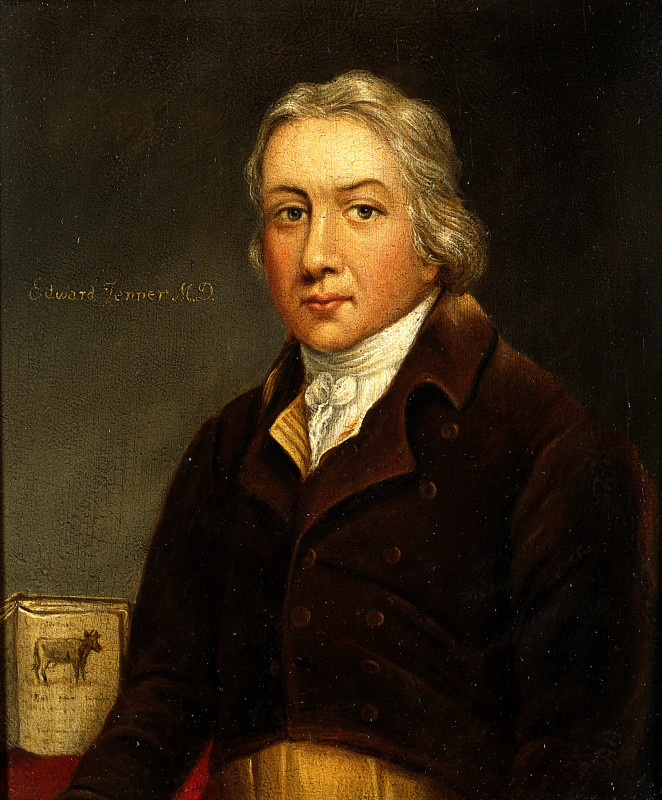Baidu, Inc. is a prominent Chinese multinational technology company focused on Internet services and artificial intelligence. Baidu is the leading search engine in China and provides various online services, including the Baidu App, Baidu Baike (an online encyclopedia), iQIYI (an online video platform), and Baidu Tieba (an online forum). The company's diverse portfolio highlights its significant influence in China's internet landscape.
May 1994: Joins IDD Information Services
In May 1994, Robin Li joined IDD Information Services, a New Jersey division of Dow Jones and Company, to develop software for the online edition of The Wall Street Journal.
1996: RankDex Developed
In 1996, Robin Li developed RankDex, an earlier search engine before founding Baidu.
1996: RankDex Site-Scoring Algorithm Developed
In 1996, while at IDD, Robin Li developed the RankDex site-scoring algorithm for search engines results page ranking, and received a US patent for the technology. RankDex was the first search engine that used hyperlinks to measure the quality of websites it was indexing.
June 1997: Leaves IDD Information Services
In June 1997, Robin Li left IDD Information Services after working on search engine algorithms.
1998: PageRank Algorithm by Google
In 1998, Google developed a similar PageRank algorithm, and Google founder Larry Page referenced Robin Li's work as a citation in some of his U.S. patents for PageRank.
January 2000: Baidu Incorporated
In January 2000, Baidu was incorporated by Robin Li and Eric Xu.
2001: Advertising Model Introduced
In 2001, Baidu allowed advertisers to bid for ad space and pay for each customer click, preceding Google's advertising approach.
2003: Launches News and Picture Search Engines
In 2003, Baidu launched its news search engine and picture search engine, adopting a special identification technology capable of identifying and grouping the articles.
August 2005: Goes Public on Wall Street
On 5 August 2005, Baidu went public on Wall Street through a variable interest entity (VIE) based in the Cayman Islands.
December 2007: Inclusion in NASDAQ-100 Index
In December 2007, Baidu became the first Chinese company to be included in the NASDAQ-100 index.
2007: Receives License as News Website
In 2007, the Chinese government granted Baidu a license, allowing the search engine to become a full-fledged news website, the first Chinese search engine to receive such a license.
2008: Japanese Search Service Started
In 2008, Baidu started its Japanese language search service, run by Baidu Japan, the company's first regular service outside of China.
April 2009: Leaked Documents Show Baidu's Online Censorship
In April 2009, documents leaked from an employee in Baidu's internal monitoring and censorship department revealed a long list of blocked websites and censored topics on Baidu search, highlighting Baidu's history of being an active and restrictive online censor.
2009: Iranian Election Protests
The website purporting to be the Iranian Cyber Army, was thought to be behind the attack on Twitter during the 2009 Iranian election protests.
January 2010: Baidu.com Hacking Incident
On 12 January 2010, Baidu.com's DNS records in the United States were altered, redirecting browsers to a website claiming to be the Iranian Cyber Army. This made the site unusable for four hours. Later, Chinese hackers responded by attacking Iranian websites.
August 2010: Revenue Share Increase After Google's Move
In August 2010, Baidu's share of revenue in China's search-advertising market grew six percentage points in the second quarter to 70%, according to Beijing-based research firm Analysys International, after Google moved its China search service to Hong Kong.
May 2011: Baidu Sued in U.S. over censorship
In May 2011, activists sued Baidu in the United States, alleging that its censorship practices, in accordance with the Chinese government's demands, violated the U.S. Constitution. However, a U.S. judge ruled that Baidu, as a search engine, had the right to block content from its query results under freedom of speech rights, leading to the dismissal of the lawsuit.
February 2012: Hudong accuses Baidu of monopolistic behavior
In February 2012, Hudong filed a complaint with the State Administration for Industry and Commerce, accusing Baidu of monopolistic behavior and requesting a review of its practices.
April 2012: Baidu Applies for "DNA copyright recognition" Technology Patent
In April 2012, Baidu JDC long live applied for a patent for its "DNA copyright recognition" technology. This technology automatically scans files uploaded by Internet users, recognizes, and filters out content that may violate copyright law, allowing Baidu to offer an infringement-free platform.
July 2012: Partnership with Sina for Mobile Search
On 31 July 2012, Baidu announced its partnership with Sina to provide mobile search results.
August 2012: Bribery Arrests
On 6 August 2012, the BBC reported that three employees of Baidu were arrested on suspicion of accepting bribes for deleting posts from the forum service. Four people were fired in connection with these arrests.
November 2012: Partnership with Qualcomm
On 18 November 2012, Baidu announced a partnership with Qualcomm to offer free cloud storage to Android users with Snapdragon processors.
2012: Third-Party English Advertising Tool Developed
In 2012, a third-party company developed a tool with an interface in English for advertising on Baidu, as Baidu's web administrative tools are all in Chinese.
July 2013: Intention to Purchase 91 Wireless Announced
On 16 July 2013, Baidu announced its intention to purchase 91 Wireless from NetDragon. 91 Wireless is best known for its app store.
August 2013: Definitive Merger Agreement to Acquire 91 Wireless
On 14 August 2013, Baidu announced that its wholly owned subsidiary Baidu (Hong Kong) Limited has signed a definitive merger agreement to acquire 91 Wireless Web-soft Limited from NetDragon Web-soft Inc. for $1.85 billion.
August 2013: Personal Assistant App Launched
On 2 August 2013, Baidu launched its Personal Assistant app, designed to help CEOs, managers, and white-collar workers manage their business relationships.
May 2014: Andrew Ng Appointed Chief Scientist
On 16 May 2014, Baidu appointed Dr. Andrew Ng as chief scientist to lead Baidu Research in Silicon Valley and Beijing.
July 2014: Baidu Busca Launched in Brazil
On 18 July 2014, Baidu launched a Brazilian version of the search engine, Baidu Busca.
August 2014: Baidu's market share declines
In August 2014, Baidu's search market share in China decreased to 56.3%, while its competitor Qihoo 360, which rebranded its search engine as so.com, increased its market share to 29.0%, according to a report from CNZZ.com.
October 2014: Acquisition of Peixe Urbano
On 9 October 2014, Baidu announced the acquisition of Brazilian local e-commerce site Peixe Urbano.
February 2015: Baidu Alleged to use Anticompetitive Tactics in Brazil
In February 2015, Baidu was accused of engaging in anticompetitive behavior in Brazil, targeting the online security firm PSafe and Qihoo 360 (the largest investor in PSafe).
March 2015: Japanese Search Engine Closed
On 16 March 2015, Baidu's Japanese search engine, run by Baidu Japan, closed.
January 2016: Baidu Stops Selling Illness-Related Tieba
In January 2016, Baidu announced it would cease selling all its illness-related Tieba communities, including the hemophilia online community. On January 12, Baidu officially announced that all Baidu Tieba for all types of diseases would completely stop commercial cooperation and would only be open to authoritative public welfare organizations.
April 2016: Wei Zexi's Death Linked to Baidu's P4P Search Results
In April 2016, Baidu's pay-for-placement (P4P) search results reportedly played a role in the death of Wei Zexi, a 21-year-old student who sought an experimental cancer therapy he found online. He was diagnosed with synovial sarcoma and found the Second Hospital of the Beijing Armed Police Corps through Baidu, where the hospital had been promoting itself. The treatment was unsuccessful, and Wei died in April 2016.
April 2016: Wei Zexi dies after treatment found through Baidu
Wei Zexi, who spent around 200,000 yuan (approximately US$31,150) for treatment found through Baidu's search engine at the Second Hospital of the Beijing Armed Police Corps, died on April 12, 2016. The incident sparked widespread online discussions following Wei's death.
May 2016: CAC Investigates Baidu After Wei Zexi Incident
On May 2, 2016, following the death of Wei Zexi, the Cyberspace Administration of China (CAC) dispatched a team of investigators to Baidu. This was after the online outrage that followed the death of Wei Zexi in April 2016.The investigation revealed the impact of medical advertising revenue and prompted Chinese regulators to impose restrictions on Baidu, including disclaimers and complaint channels. Fang Kecheng even proclaimed "Search engine Baidu is dead".
2016: DO Global apps secretly enhance ad revenue since 2016
Since 2016, several Android applications developed by Baidu's subsidiary, DO Global, were surreptitiously running revenue enhancing background programs on user devices. These programs clicked on internet ads even when devices were idle, to increase revenue generated by clicks.
April 2017: Apollo Project Launched
In April 2017, Baidu announced the launch of its Apollo project, a self-driving vehicle platform, aimed to help develop autonomous cars including vehicle platform, hardware platform, open-source software platform and cloud data services.
June 2017: Partnerships with Continental and Bosch
In June 2017, Baidu partnered with Continental and Bosch, auto industry suppliers, on automated driving and connected cars.
July 2017: Planned Apollo Launch
Baidu planned to launch the Apollo project in July 2017, before gradually introducing fully autonomous driving capabilities on highways and open city roads by 2020.
July 2017: Partnership with Snap Inc.
In July 2017, Baidu GBU partnered with Snap Inc. to act as the company's official ad reseller for Snapchat in Greater China, South Korea, Japan, and Singapore.
September 2017: $1.5 Billion Autonomous Driving Fund Launched
In September 2017, Baidu launched a $1.5 billion autonomous driving fund to invest in autonomous driving projects. Apollo open-source software version 1.5 was also launched at the same time.
September 2017: New Portable Talking Translator Launched
In September 2017, Baidu rolled out a new portable talking translator. It can also be used as a portable Wi-Fi router and is able to operate on networks in 80 countries. Baidu will also be inserting artificial intelligence (AI) technology into smartphones, through its deep learning platform.
October 2017: Self-Driving Buses Announced
In October 2017, The Wall Street Journal reported that Baidu would launch self-driving buses in China in 2018.
November 2017: Baidu World Technology Conference Announced
In October 2017, Baidu announced that its first annual Baidu World technology conference (Bring AI to Life) would be held and live-streamed on 16 November 2017, at China World Summit Wing and Kerry Hotel.
2017: Baidu Collaborates to Detect Anti-Government Rumors
In 2017, Baidu collaborated with the Chinese Ministry of Public Security and 372 Internet police departments to identify information related to "anti-government rumors." They then used natural language processing, big data, and artificial intelligence to flood Baidu-linked websites, news sites, and devices with alerts that refuted misinformation.
May 2018: Market Cap Reaches US$99 Billion
As of May 2018, Baidu's market capitalization rose to US$99 billion.
October 2018: Joins Partnership on AI
In October 2018, Baidu became the first Chinese firm to join the United States–based computer ethics consortium Partnership on AI.
2018: Planned Launch of Self-Driving Buses
Baidu planned to launch self-driving buses in China in 2018.
2018: Divestment of Global DU Business
In 2018, Baidu divested the "Global DU business" portion of its overseas business, which developed a series of utility apps including ES File Explorer, DU Caller, Mobojoy, Photo Wonder and DU Recorder, etc. This business now operates independently of Baidu under the name DO Global.
2018: Designated as AI Champion
In 2018, China's government designated Baidu as one of its "AI champions".
2018: Criticism of Search Result Reliability
In 2018, People's Daily commented on issues regarding the reliability of Baidu's search results, often as many as the first two pages of search results tend to be paid advertisers. Baidu's primary advertising product is called Baidu Tuiguang and is similar to Google Ads and AdSense.
April 2019: DO Global Apps Run Revenue Enhancing Background Programs
On April 20, 2019, it was reported that several Android applications developed by Baidu's subsidiary, DO Global, had been running revenue-enhancing background programs on user devices since at least 2016. These programs surreptitiously clicked on internet ads, even when the devices were idle, to increase revenue generated by "clicks," unbeknownst to end users.
April 2019: Google Bans DO Global Apps
On April 26, 2019, Google banned DO Global and over 100 of its applications from the Google Play Store. DO Global was also banned from Google's AdMob Network. Additionally, apps from ES Global, including ES File Explorer, owned by DO Global, were removed from the Play Store, and the account was suspended.
2019: Partnership with Snap Inc. Extended
In 2019, the partnership between Baidu GBU and Snap Inc. for Snapchat ad reselling was extended.
2020: Planned Rollout of Autonomous Driving Capabilities
Baidu had plans to introduce fully autonomous driving capabilities on highways and open city roads by 2020.
August 2021: Robocar Concept Revealed
In August 2021 Baidu revealed a new Robocar concept said to be capable of Level 5 autonomous driving. It also comes with the latest second-generation AI chip.
April 2022: Baidu Gains Permits for Driverless Taxis
In April 2022, Baidu announced that they had received permits from China to offer the first driverless taxi services. The company intends to provide driverless ride-hailing services to the public, deploying 10 autonomous cars to offer rides to passengers within a 23-square-mile area in suburban Beijing beginning on April 28, 2022.
June 2022: Jidu Auto Unveils ROBO-01 Concept
In June 2022, Jidu Auto, an intelligent electric vehicle company originally backed by Baidu and Geely, unveiled its first concept ROBO-01 in the form of a pre-production vehicle. The ROBO-01 rides on the Sustainable Experience Architecture (SEA) platform, a modular electric vehicle platform developed by Geely Holding.
July 2022: Baidu Unveils Apollo RT6 Driverless Vehicle
In July 2022, Baidu unveiled the Apollo RT6, a driverless vehicle that is scheduled to join Baidu's driverless fleet in 2023.
November 2022: Sustainalytics Downgrades Baidu for Censorship Complicity
In November 2022, Sustainalytics downgraded Baidu to "non-compliant" with the United Nations Global Compact principles due to the company's involvement in censorship activities.
August 2023: Ernie Bot Unveiled
In August 2023, Baidu unveiled its ChatGPT-equivalent language model, Ernie Bot, publicly.
October 2023: Ernie 4.0 Chatbot Released
In October 2023, Baidu released a newer version Ernie 4.0 chatbot.
2023: Apollo RT6 Planned to Join Baidu's Driverless Fleet
In 2023, Baidu plans to integrate the Apollo RT6, a driverless vehicle, into its driverless fleet, expanding its autonomous transportation capabilities.
April 2024: Apollo Go Completes Six Million Rides
As of April 2024, Apollo Go, Baidu's autonomous ride-hailing service, had completed six million rides using driverless robotaxis across 11 cities. The service operates a fleet of over 400 driverless vehicles in Wuhan.
May 2024: Baidu Executive Sparks Backlash Over Workplace Culture
In May 2024, Baidu's former vice president and head of communications, Qu Jing, caused a significant backlash across Chinese social media for endorsing a toxic workplace culture. Her comments, including a video where she asked a coworker to be on a 50-day business trip during the COVID-19 pandemic, led to discussions about Baidu's corporate governance and internal culture. She apologized and allegedly lost her job, and Baidu’s stock price fell 2.17% in Hong Kong following the incident.
March 2025: New AI Models Released
On 16 March 2025, Baidu released two new artificial intelligence models: ERNIE 4.5, a foundation model, and ERNIE X1, a reasoning model. Baidu claimed that ERNIE X1 performs comparably to DeepSeek's R1 model at half the price.
Mentioned in this timeline

Tencent is a Chinese multinational technology conglomerate headquartered in Shenzhen...
Facebook is a social media and networking service created in...

Google LLC is a multinational technology corporation specializing in a...

Larry Page is an American entrepreneur and computer scientist who...

Microsoft an American multinational technology corporation headquartered in Redmond Washington...
India officially the Republic of India is a South Asian...
Trending

1 hour ago Google Maps to fully function in South Korea after data agreement.

2 hours ago CDC Panel to Discuss COVID-19 Vaccine Injuries Following RFK Jr.'s Meeting

2 hours ago CDC Panel to Discuss COVID Vaccine Injuries Following RFK Jr.'s Meeting

2 hours ago Casey Means' Surgeon General Nomination Faces Scrutiny Over Mainstream Medicine Criticism and Birth Control Views.
4 hours ago Punch, the lonely baby monkey, goes viral and wins hearts worldwide.

5 hours ago Jon Hamm Discovers Viral Dancing Meme; Reacts to Meme-Worthy Status at 54.
Popular

Jesse Jackson is an American civil rights activist politician and...

Barack Obama the th U S President - was the...

Susan Rice is an American diplomat and public official prominent...

XXXTentacion born Jahseh Dwayne Ricardo Onfroy was a controversial yet...

Michael Joseph Jackson the King of Pop was a highly...

Kashyap Pramod Patel is an American lawyer who became the...
